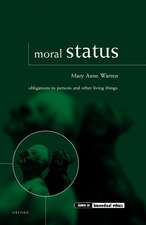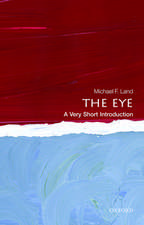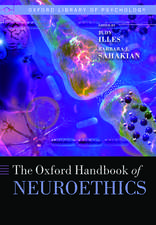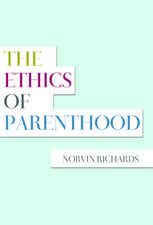African Indigenous Ethics in Global Bioethics: Interpreting Ubuntu: Advancing Global Bioethics, cartea 1
Autor Leonard Tumaini Chuwaen Limba Engleză Hardback – 25 mar 2014
| Toate formatele și edițiile | Preț | Express |
|---|---|---|
| Paperback (1) | 366.69 lei 38-44 zile | |
| SPRINGER NETHERLANDS – 3 sep 2016 | 366.69 lei 38-44 zile | |
| Hardback (1) | 380.04 lei 38-44 zile | |
| SPRINGER NETHERLANDS – 25 mar 2014 | 380.04 lei 38-44 zile |
Din seria Advancing Global Bioethics
- 20%
 Preț: 630.48 lei
Preț: 630.48 lei - 20%
 Preț: 565.64 lei
Preț: 565.64 lei - 24%
 Preț: 738.43 lei
Preț: 738.43 lei -
 Preț: 426.34 lei
Preț: 426.34 lei - 15%
 Preț: 588.37 lei
Preț: 588.37 lei - 18%
 Preț: 895.27 lei
Preț: 895.27 lei - 15%
 Preț: 693.06 lei
Preț: 693.06 lei -
 Preț: 382.36 lei
Preț: 382.36 lei - 18%
 Preț: 894.03 lei
Preț: 894.03 lei - 24%
 Preț: 629.20 lei
Preț: 629.20 lei - 24%
 Preț: 589.10 lei
Preț: 589.10 lei - 15%
 Preț: 645.60 lei
Preț: 645.60 lei - 24%
 Preț: 587.45 lei
Preț: 587.45 lei - 15%
 Preț: 643.65 lei
Preț: 643.65 lei -
 Preț: 391.22 lei
Preț: 391.22 lei - 24%
 Preț: 598.19 lei
Preț: 598.19 lei -
 Preț: 397.01 lei
Preț: 397.01 lei - 24%
 Preț: 581.32 lei
Preț: 581.32 lei
Preț: 380.04 lei
Nou
Puncte Express: 570
Preț estimativ în valută:
72.72€ • 76.12$ • 60.53£
72.72€ • 76.12$ • 60.53£
Carte tipărită la comandă
Livrare economică 26 martie-01 aprilie
Preluare comenzi: 021 569.72.76
Specificații
ISBN-13: 9789401786249
ISBN-10: 9401786240
Pagini: 272
Ilustrații: XI, 258 p. 1 illus.
Dimensiuni: 155 x 235 x 20 mm
Greutate: 0.56 kg
Ediția:2014
Editura: SPRINGER NETHERLANDS
Colecția Springer
Seria Advancing Global Bioethics
Locul publicării:Dordrecht, Netherlands
ISBN-10: 9401786240
Pagini: 272
Ilustrații: XI, 258 p. 1 illus.
Dimensiuni: 155 x 235 x 20 mm
Greutate: 0.56 kg
Ediția:2014
Editura: SPRINGER NETHERLANDS
Colecția Springer
Seria Advancing Global Bioethics
Locul publicării:Dordrecht, Netherlands
Public țintă
ResearchCuprins
Chapter One – Introduction: The Culture of Ubuntu Chapter Two – Ubuntu Ethics Chapter Three – Ethics of Care: enlightening the role of rights in global bioethics Chapter Four – UNESCO Declaration: enlightening the cosmic context of global bioethics Chapter Five – Catholic Social Ethics: enlightening the role of solidarity in global bioethics Chapter Six – Conclusion
Textul de pe ultima copertă
This book educates whilst also challenging the contemporary schools of thought within philosophical and religious ethics. In addition, it underlines the fact that the substance of ethics in general and bioethics/healthcare ethics specifically, is much more expansive and inclusive than is usually thought. Bioethics is a relatively new academic discipline. However, ethics has existed informally since before the time of Hippocrates. The indigenous culture of African peoples has an ethical worldview which predates the western discourse. This indigenous ethical worldview has been orally transmitted over centuries. The earliest known written African text containing some concepts and content of ethics is the “Declaration of Innocence” written in 1500 B.C., found in an Egyptian text. Ubuntu is an example of African culture that presents an ethical worldview. This work interprets the culture of Ubuntu to explain the contribution of a representative indigenous African ethics to global bioethics. Many modern scholars have written about the meaning of Ubuntu for African societies over centuries. Some scholars have viewed Ubuntu as the greatest contribution of African cultures to other world cultures. None of the scholars, however has explored the culture of Ubuntu as providing a representative indigenous ethics that can contribute to global bioethics as discussed in this book.
Caracteristici
Challenges the contemporary schools of thought within philosophical and religious ethics Underlines the fact that the substance of ethics generally and bioethics / healthcare ethics specifically is much more expansive and inclusive than it is usually understood Invites ethicists and bioethicists to dialogue and research into Ubuntu and other similar indigenous cultures Includes supplementary material: sn.pub/extras

















